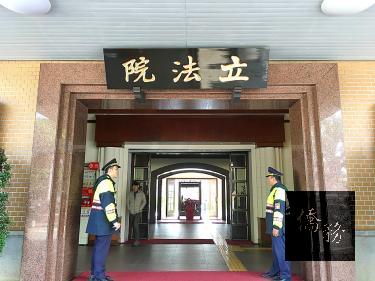
The Legislative Yuan yesterday decided to review a draft cultural basic act and a proposed amendment to the Act for Industrial Innovation on Friday, when the new legislative session is scheduled to begin.
The decisions were reached during a meeting of the legislature’s Procedure Committee based on motions tendered by the Executive Yuan and lawmakers.
The draft cultural basic act states that culture — including the right to participate in cultural activities and create — is a basic right and that the nation should introduce cultural policies that promote diversity, protect the right to self-determination of different ages and ethnic groups, and facilitate international dialogue.
The nation should establish a public broadcasting group that creates diversified content to facilitate the freedom of expression that would be funded by a cultural development fund allocated by the Ministry of Culture, the bill says.
In addition to ensuring sufficient personnel in the public sector to implement cultural policies, the nation may (not should or must) prioritize suitable foundations or other organizations in the cultural sector when granting monetary awards, issuing subsidies, making donations or contracting projects from its cultural budget, but it should abide by the “arm’s length” principle and respect the creative direction of the parties subsidized or entrusted with a project, it says.
To facilitate industrial upgrades and transformation, the proposed amendment to the Act for Industrial Innovation seeks to establish a time frame in which income tax breaks are available to companies that purchase self-use smart machinery or integrate 5G mobile network technologies into their operations.
The draft amendment identifies smart machinery as that which applies artificial intelligence, big data, the Internet of Things, lean management, virtual-reality integration and other related technologies.
The draft amendment includes two options for the tax breaks: an annual deduction of up to 5 percent of a company’s expenses on smart machinery that is 5G-enabled, or a deduction of up to 3 percent of the amount spent each year over three consecutive years.
Companies that are eligible for the tax breaks must purchase smart machinery between Jan. 1 and Dec. 31, 2021, or integrated 5G technologies between Jan. 1 and Dec. 31, 2022, and have not recorded any contravention of labor, environmental or food safety regulations in the three years prior to the amendment’s promulgation, the draft amendment says.